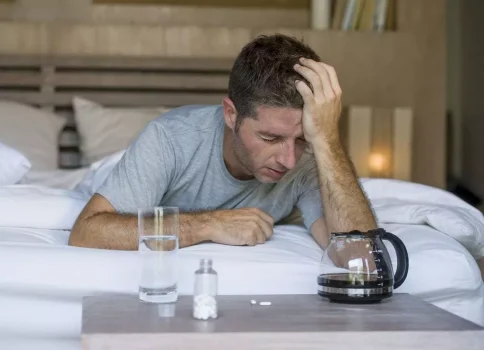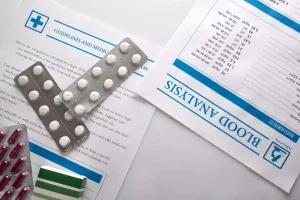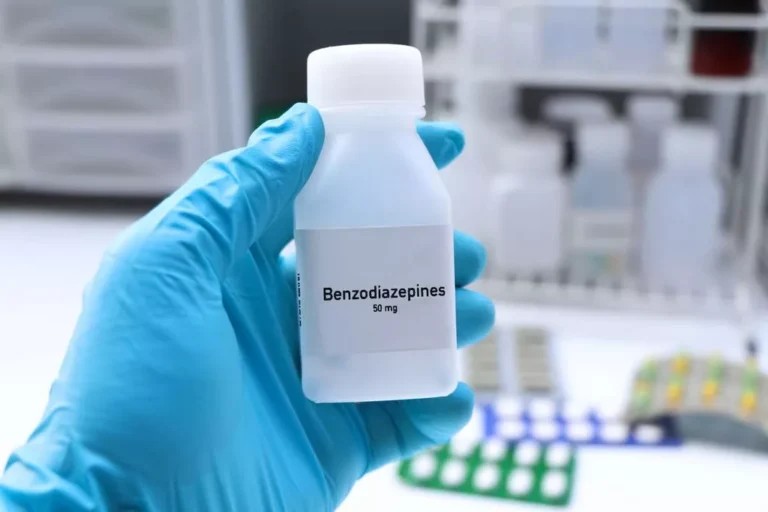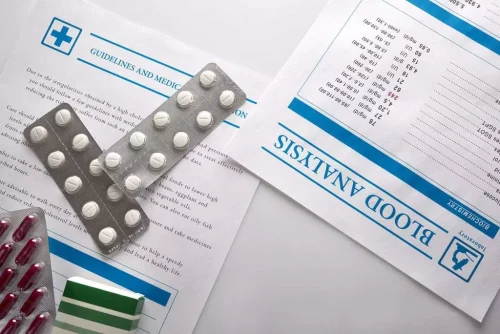
In one study, researchers found that about 75% of people who drank excessively the night before reported hangover symptoms. The researchers concluded that 25% to 30% of people who drink may be resistant to hangovers. It can linger for several hours even after a person no longer has an elevated blood alcohol level. The length and severity of a hangover can vary from person to person.
- Sleep allows your body time to metabolize alcohol and recover, but it wonât instantly fix dehydration or electrolyte imbalances.
- The Food and Drug Administration (FDA) warned companies against claiming their supplements cure or prevent hangovers â without FDA approval, itâs illegal to do so.
- One strategy that some find beneficial is to alternate between an alcoholic beverage and water.
Positives And Negatives Of Alcohol

Alcohol suppresses glutamine, a natural stimulant in the body and one of the most abundant amino acids in the brain. Glutamine plays a crucial role in brain function and the immune system. When you drink, glutamine production is suppressed, but when you stop drinking, the body compensates by overproducing glutamine.
One: alcoholâs diuretic effect leads to dehydration
And a Dutch study found that university students in the Netherlands tend to suffer from a hangover nearly three days out of every month â which amounts to about one âlostâ month every year. Diagnosis involves a doctorâs assessment, probing medical history, and symptoms, coupled with blood or urine tests. Hangovers can be categorized into several types based on their symptoms and severity. The Doctor Weighs In is a trusted source for quality evidence-based stories about health, healthcare, and innovation. Your body’s already under a little bit of strain during your period, and since alcohol can dehydrate you, it can deplete your energy even more on your period, says Dr. Cox.
What Causes Hangxiety?
A hangover can cause a range of how long does a hangover last unpleasant symptoms such as headache, fatigue, and nausea. And, you donât necessarily have to drink every day in order for it to be a problem. For example, long recovery time after binge drinking every weekend could be an indication of maladaptive patterns of use and growing alcohol dependence.

Seeking Treatment for Alcohol Use Disorder? We Can Help!
But the best hangover cure is to wait it out and drink lots of water. Itâs also good to know the difference between alcohol poisoning and hangovers, though alcohol poisoning symptoms usually show up while youâre drinking, not the day after. Some people rehydrate using sports drinks containing electrolytes to ease hangover symptoms.
- When substance abuse issues are treated without consideration for the mental health problems which cause them, itâs likely to result in a return to unhealthy behaviors as a way of coping with stress.
- Thereâs evidence that reduced sleep after drinking leads to more severe hangovers.
- When you’re drunk, using any potion will heal you in addition to its own affect.
How Long Does a Hangover Last?
- Hangover intensity and duration are individual to the person and how much alcohol was consumed.
- But the best hangover cure is to wait it out and drink lots of water.
- Youâll experience the worst symptoms when BAC reaches zero, around 12â14 hours after drinking, and these symptoms may last up to 20 hours or even more.
- This sudden increase, known as glutamine rebound, leads to a stimulant effect when youâre trying to sleep off the alcohol.
- However, these results are inconsistent, and other factors may be involved.
Dr. what is Oxford House Goggans also says that the strength and length of your hangover goes hand in hand with the amount of alcohol you had. âThere are also some other factors that are speculated to influence the intensity and duration of a hangover,â he says. While you wait for your hangover to end, try to rest and drink plenty of hydrating fluids.
- Also, have at least one glass of water for each alcoholic beverage consumed.
- âMuch of it is likely due to the way our bodies change in size and shape as we age.
- Some people take over-the-counter pain relievers (often acetaminophen) before going to bed to minimize hangovers.
- Take these medications with a meal to avoid stomach irritation or further harming your stressed liver.
- As your alcohol and insulin levels drop back down to normal, you may experience low blood sugar levelsâalso known as hypoglycemia.
- So why do some hangovers last an appropriate amount of time and others…don’t?
Symptoms
Also, the ability to perform important https://ecosoberhouse.com/ tasks, such as driving, operating machinery, or caring for others can be negatively affected. When you’re in the positive phase of drunkenness, you’ll get a bonus of up to +4 to your Unarmed combat skill. When you’re in the positive phase of drunkenness, you gradually gain up to a +4 bonus on your Craftmaship skill. When you’re in the positive phase of drunkenness, you get a bonus of up to +4 Thievery. In some situations, hangxiety can feel like a panic attack, with symptoms of shortness of breath, sweating, and shaking. A national survey found that more than 9 percent of U.S. workers went into work with a hangover at some point in the previous year.
Alcohol Abuse Slides
If youâre experiencing recurring episodes of hangxiety when you drink alcohol, it could be a sign that you have an underlying mental health condition or alcohol use disorder. If you find that youâre experiencing unpleasant effects during or after drinking alcohol, consider not drinking at all. Health issues such as kidney disease or liver disease can make you more prone to adverse effects of alcohol and more severe alcohol withdrawal symptoms.

In general, the severity of your symptoms depends on how much you drank and for how long. If youâre not feeling any better after 24 hours, itâs best to check in with your healthcare provider. However, drinking more does often make for a more severe hangover, and severe hangovers usually last longer. This means it is difficult to predict the number of drinks or the amount of alcohol that will cause a hangover. However, generally, if a person drinks enough to feel intoxicated, they have a greater chance of experiencing a hangover. Alcohol is the main culprit in a hangover, but other components of alcoholic beverages might contribute to hangover symptoms or make a hangover worse.
Are Hangovers Dangerous or Just Painful?
However, research has not found a connection between electrolyte disruption and hangover symptom severity. There are skills to increase the helpful side of drinking, as well as some that reduce the impact of hangovers. As your skill increases, you’re also less likely to get addicted to alcohol.

